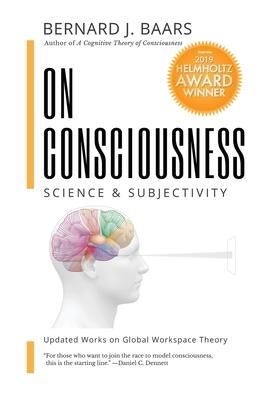"One of the most important and influential theories of consciousness. A MUST READ for anyone interested in the scientific treatment of consciousness." David Rosenthal, CUNY
"The works of Bernard Baars collected here are among the foundational texts of the scientific study of consciousness. Their influence in cognitive science and philosophy of mind is enormous, and their impact on my own thinking has been profound." Murray Shanahan, DeepMind
Bernard Baars' Global Workspace Theory (GWT) is a theory of human cognitive architecture, the cortex, and consciousness. GWT is a widely used framework for the role of conscious and unconscious events in the functioning of the brain. Global Workspace Dynamics (GWD) is the most current version of GWT - attempting to account for complexities of the living brain.
These updated works, from the recipient of INNS 2019 Hermann von Helmholtz Life Contribution Award for paradigm changing, long lasting influence and impact in perception:
- form a coherent effort to organize a large and growing body of scientific evidence about conscious brains,
- and trace the beginnings of GWT/GWD through the continued rise of brain evidence and psychological understanding.
Throughout human history, people have perceived the conscious brain as the great nexus of human life, of social relationships, of their personal identities and histories, in encounters with new challenges. Consciousness under its many labels and manifestations is widely seen to be one of the core mysteries of life.
Making progress in understanding consciousness has a vast number of implications - philosophical, metaphysical, scientific, clinical, and practical. Many therapeutic approaches can be viewed in a Global Workspace framework, including:
- traditional psychodynamics
- depth psychology
- cognitive behavioral techniques
- many other carefully studied human functions
"BRILLIANT!" Deepak Chopra, MD
"A magnificent achievement!" Pat Churchland, UCSD
"Baars is a giant on whose shoulders the future science of consciousness will stand." Antti Revonsuo, Cognitive Neuroscientist
